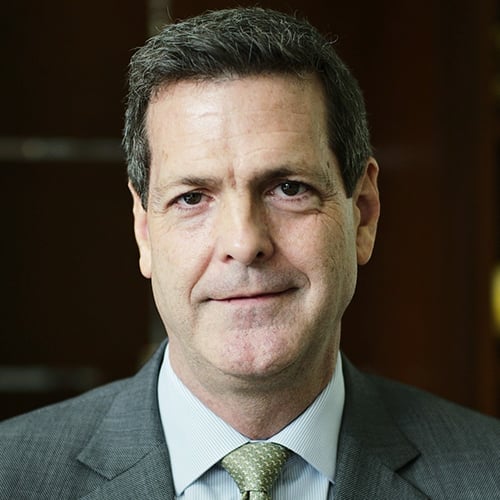As has been said quite often, one result of Covid-19 is the accelerated adoption of digital technology. In wealth management, a growing number of investors, who seek professional advice but are hampered by social-distancing rules, are seeing the advantages of robo-advisory services.
Michele Ferrario, co-founder and chief executive officer at Singapore-based digital wealth manager StashAway, says a lot more people are now thinking about their personal finances in view of the market volatility and the overall uncertainty brought about by the pandemic.
“We’ve seen more than 20,000 attendees in our StashAway Academy seminars and webinars since we launched and we continue to see strong growth,” Ferrario notes.
“As we can expect in times of volatile markets and uncertainty, some investors have paused their investment plans or, in some cases, liquidated their portfolios towards cash or our StashAway Simple portfolio,” he adds.
Risk aversion is understandably heightened in an environment where many elements of the investing equation – when the pandemic will end, for example – are indeterminate. That’s where robo-advisors derive their appeal. They are not only able to provide remote services, but they also dispense financial advice and manage investments based on complex algorithms that take into consideration the client’s risk tolerance and return objectives as well as the current economic cycle and market performance.
Management fees are another important consideration, as far as investors are concerned, and robo-advisors, as in the case of all machine-enabled services, are generally more economical – aside from being more impartial, consistent and accessible – than their human counterparts.
For example, the net expense ratio for StashAway Simple, the company’s cash management product, is 0.205%, which is comparable to that for passive index funds and much lower than that for actively managed portfolios, but with no minimum balance requirement or withdrawal restrictions.
Another Singapore-based robo-advisor, Autowealth, has also seen an increase in sign-ups for its services, about 30% from just before the coronavirus crisis.
“We believe many new and existing users committed their idle funds to take advantage of the huge market discount presented by Covid,” says co-founder and chief investment officer Tai Zhi. “Users with aggressive risk profiles are buying into global equities to position for a Democratic Party clean sweep of the White House and Congress, while a small group of users are doing the exact opposite, buying into government bonds to hedge against a potential repeat of the 2000 election result dispute.”
Dhruv Arora, founder and CEO at digital wealth manager Syfe, says that since Covid-19 broke out, his company has seen strong demand across three main segments. “Investors looking for exposure to real estate and income-generating investments are buying into our REIT+ portfolio, those that believe in a fast recovery and continued growth of the technology sector have shown great appetite for our Equity100 portfolio, while the more risk-averse and long-term investors are buying into a Global portfolio, consisting of equities, bonds and gold,” he notes.
Prior to the pandemic, robo-advisors were already growing at a steady pace and competing with the three main lenders in Singapore, which have rolled out their own proprietary robo-advisory offerings for retail investors. The leading industry players, however, assert that their platforms are nimbler to evolve and adapt to rapidly changing consumer needs.
Among those consumers are the younger tech-savvy generation in Asia who stand to benefit from the largest and most concentrated transfers of wealth in history.
The pandemic is apparently accelerating that wealth shift, and the inheritors tend to think very differently from their parents when it comes to managing wealth.
“We’re already seeing a shift in high-net-worth clients moving their investments away from high-fee products to a more cost-efficient alternative that is more personalized and just as sophisticated, says StashAway’s Ferrario. “It’s often their sons, daughters, nieces or nephews who have encouraged them to open an account with a player like us.”
Autowealth’s Tai Zhi agrees: “We are certainly seeing that trend taking shape, the lethal combination of superior returns and on-demand hassle-free service is giving traditional advisors a good run for their money.”
Syfe’s Arora is also confident that digital wealth solutions will be the new norm. “It will allow a much broader audience to access quality financial products which were only available to high-net-worth individuals in the past. As with so many other areas of our life, digitalization will reduce cost, bring about convenience, transparency and cost-efficiency, aspects that everyone will be able to benefit from, not only the wealthy.”









